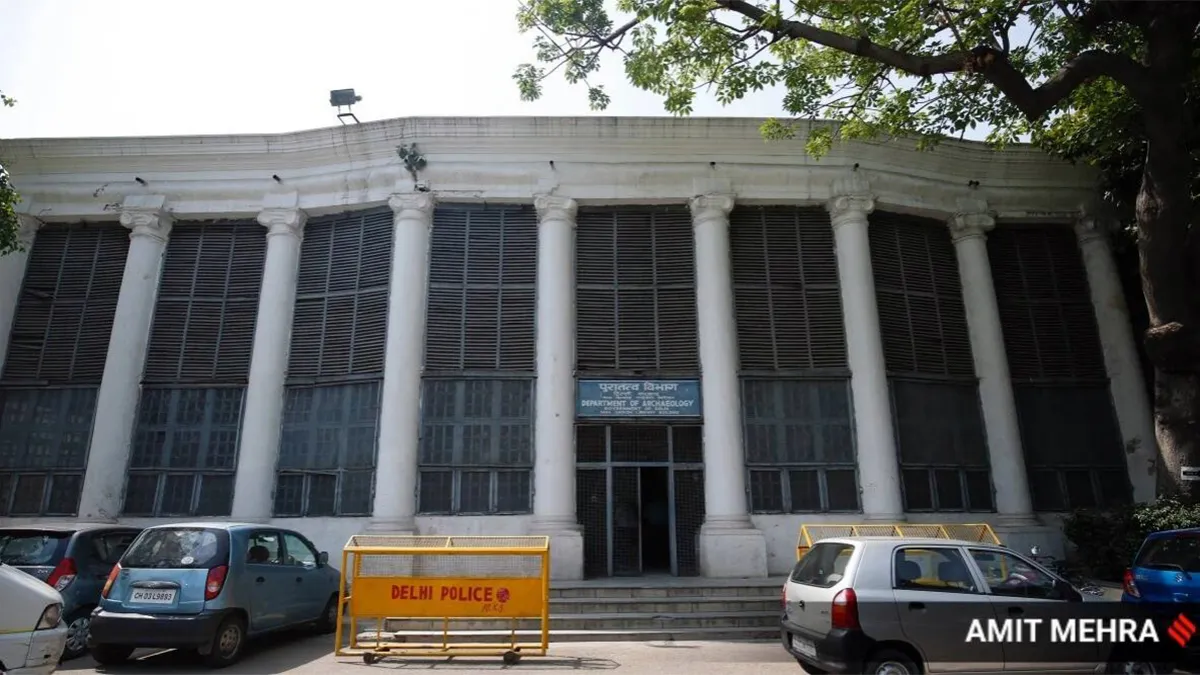Mughal-era Dara Shikoh Library building in Delhi to be converted into a museum on Partition
18 Feb 2023
News
Work is underway to covert the Mughal-era Dara Shikoh Library building in Delhi into a museum themed on the Partition, which will tell the story of the 1947 tragedy through interactive media. Delhi Deputy Chief Minister Manish Sisodia visited the museum site on Friday and inspected the progress of the project.
His office said in a statement that building of the historic library, built in 1637, is being converted into a 1947 Partition Museum by the Delhi government under the leadership of Chief Minister Arvind Kejriwal.
“The second such museum in India, it will have seven galleries to explain the events leading up to the Partition, and Independence, migration, refugees, rebuilding homes, art, relationships and will also have a gallery of hope and courage,” it said.
The museum will also feature a “virtual reality experience”, donated belongings of people who witnessed the Partition, and a souvenir shop. The library will also serve as a cultural hub with exhibitions on different aspects of the city and its history. The museum is due to be opened soon, the statement said.
During his visit, Sisodia interacted with curators who provided him with a rundown of the work that had been completed on the project.
Sisodia said historical buildings located across Delhi symbolise the country’s evolution over a period of time, adding the city government has “prioritised restoration” of these landmarks to help current generations understand the country better.
There could not have been a better place than the Dara Shikoh Library building to house the Partition museum, he said.
The Delhi deputy chief minister said that the museum would endeavour to depict the memories of the 1947 Partition as experienced by people.
The period transformed Delhi significantly and major parts of the national capital, including areas like Lajpat Nagar, C R Park and Punjabi Bagh, were established after the Partition, he added.
The museum’s opening will also coincide with the 76th anniversary of India’s independence, he said.
The museum would feature seven customised galleries designed to explain all aspects of India’s Partition and the struggle for Independence to visitors. Witnessing the same rail coaches, ancient havelis, and replicas of refugee camps would be exciting and nostalgic for many, the statement said.
Sisodia further said that to provide better experience to visitors, many people who witnessed the Partition, donated items such as clothes, utensils, books as well as belongings from refugee camps to the museum.
It will also have a special gallery dedicated to Sindh, the statement said. Sisodia said the museum would also include a ‘Gallery of Hope and Courage’ which would display photographs, mementos, and experiences of people revisiting their ancient properties and places in Pakistan, decades after the Partition.
He also said in addition to the museum, the Dara Shikoh Library building would be converted into a hub for curated cultural experiences. It will display narratives and exhibitions on different aspects of the city and the individuals associated with it. Along with the museum, the building would have a cafeteria, souvenir shop, small library and a reading area, he added.
The Dara Shikoh Library building was originally built in 1637 by Dara Shikoh, the eldest son of Mughal emperor Shah Jahan. After the death of Shikoh, this mansion was handed over to Bahadur Shah I, heir apparent of Aurangzeb, the statement said.
“Sometime after his ascension, the property was handed over to Juliana Dias da Costa, a lady of Portuguese descent who played a prominent role in his court. Abul Mansur Mirza Muhammad Muqim Ali Khan (Safdarjung) bought the property very cheaply from the descendants of Juliana Dias da Costa and made it his residence,” it added.
Under the British rule, it served as a British Residency for David Ochterlony, Archibald Seton and Charles Metcalf. In the 20th century, the property was also used as a school, a polytechnic and lastly as the offices of the Delhi State Archaeology Department, it said.
Thereafter, the Arts And Cultural Heritage Trust (TAACHT) was entrusted the building under the ‘Adopt A Heritage’ scheme by the department of art, culture and language, to set up the Partition museum, the statement said.
